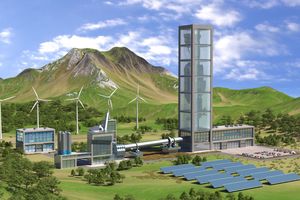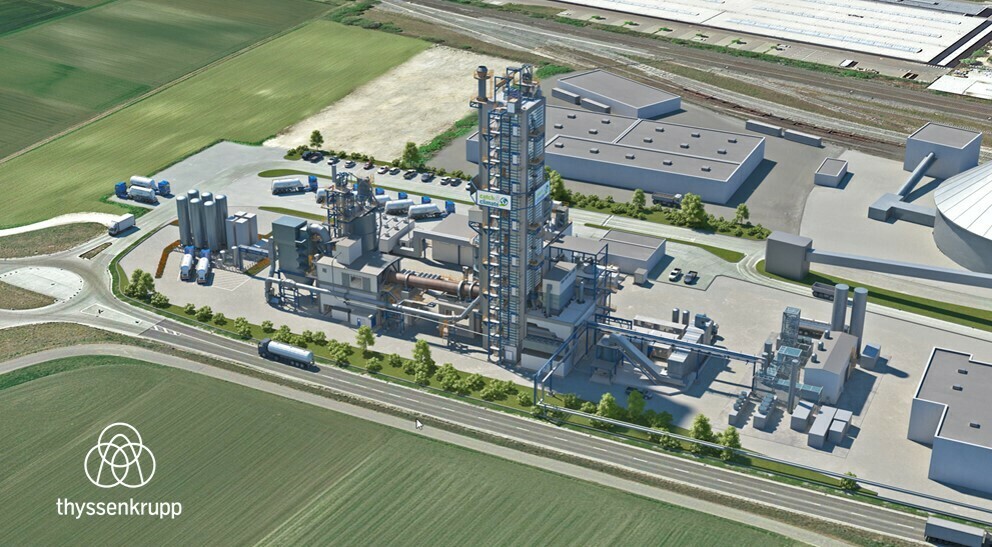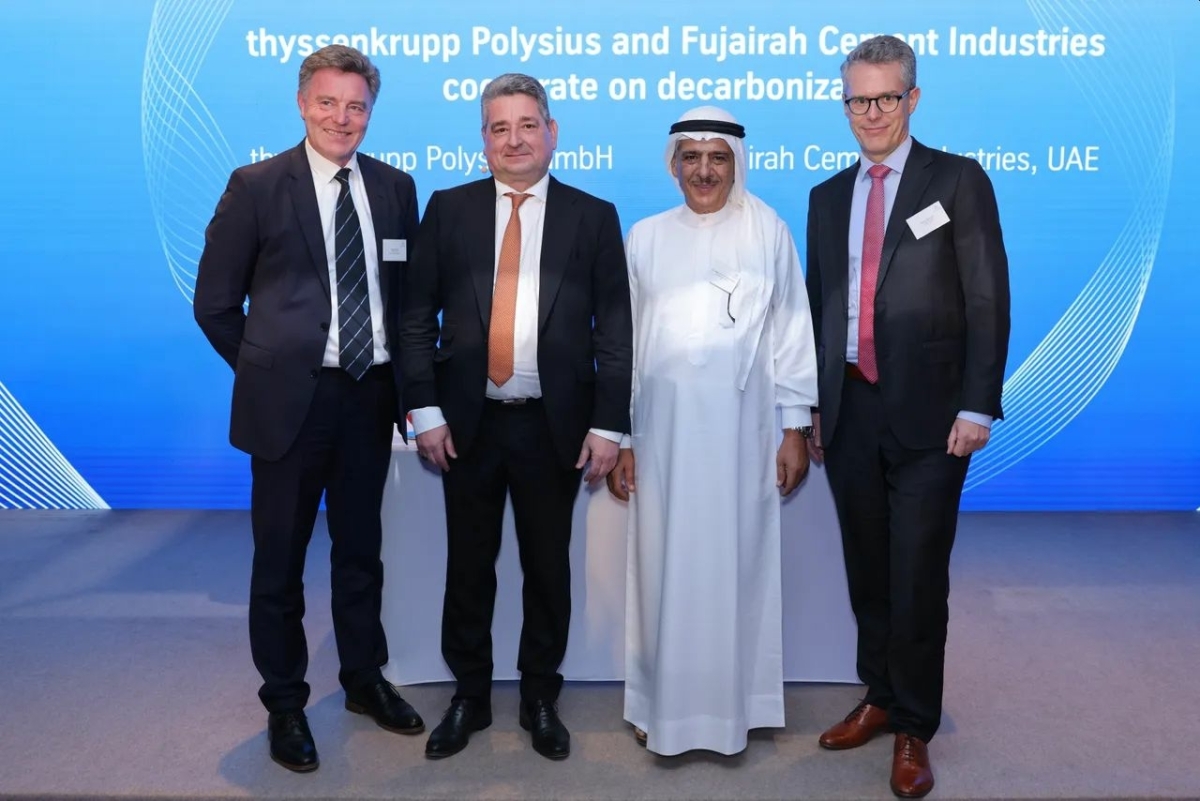polysius® pure oxyfuel – investigating the industrial-scale use of carbon capture technology in cement production
The production of cement releases large quantities of carbon dioxide (CO2). Only a third of these CO2 emissions result from the combustion of fossil fuels such as coal or petroleum coke, while the biggest share is released by the calcination of limestone. Depending on quality, limestone – the main component of cement – consists of 35 % to 44 % CO2.
Luc Rudowski, Head of Innovation at thyssenkrupp Industrial Solutions, Business Unit Cement Technologies: “Reducing CO2 emissions in cement production is one of the most important challenges facing the industry today. As part of our #grey2green journey we are developing technologies and solutions for sustainable cement production without losing sight of plant profitability and productivity. One example of this is the newly developed polysius® pure oxyfuel technology for optimum CO2 separation. Other solutions developed by us range from more sustainable cement production using polysius activated clay or polysius booster mill, the optimal use of alternative fuels with prepol® SC, to reducing NOx emissions through Cemcat® SCR.”
Oxyfuel – pure oxygen replaces air in the kiln
The oxyfuel technology replaces ambient air in the clinker production process with pure oxygen introduced into the front zone of the cooler. As the nitrogen content of the air is no longer present, the CO2 concentration in the kiln exhaust gas can be increased to up to 100 %. This much more efficient CO2 separation serves as the basis for the downstream utilization or storage of carbon dioxide.
However, the advantage of reducing the exhaust gas to a virtually pure CO2 stream means that there is too little gas in the preheater to operate the cyclones. In the first-generation oxyfuel process, this necessitated a complex gas recirculation system from the preheater exhaust to the cooler involving heat exchange, dust removal, and condensation.
Dr Georg Locher, Head of R&D: “With the second-generation polysius pure oxyfuel process, exhaust gas recirculation can be eliminated, resulting in considerable savings in investment and operating costs, and making polysius pure oxyfuel the best-in-class technology for CO2 capture. Another advantage is that existing kiln plants can also be retrofitted with this process. By using the polysius pure oxyfuel process, our customers profit from optimized operating costs, while freeing our communities and environment from high CO2 emissions.”
Research company CI4C investigating use of polysius pure oxyfuel
The four European cement manufacturers Buzzi Unicem-Dyckerhoff, HeidelbergCement AG, Schwenk Zement KG, and Vicat plan to investigate the industrial-scale use of oxyfuel carbon capture technology in cement production in a demonstration plant. To this end, the research company “CI4C – Cement Innovation for Climate” was established. The aim is to capture 100 % of the CO2 and use it with the help of renewable energies to produce so-called “refuels”, i.e. climate-neutral synthetic fuels such as kerosene for the aviation industry.
Dr Markus Sauer, Senior Proposal Manager: “The research company CI4C and thyssenkrupp are currently investigating the use of our polysius pure oxyfuel technology in a demonstration plant. Working with our long-standing customers, we would be delighted if we could demonstrate the efficiency of our technology for the first time on an industrial scale. By using this technology, the cement industry could significantly reduce its process-related CO2 emissions and thus make an important contribution to climate protection.”




